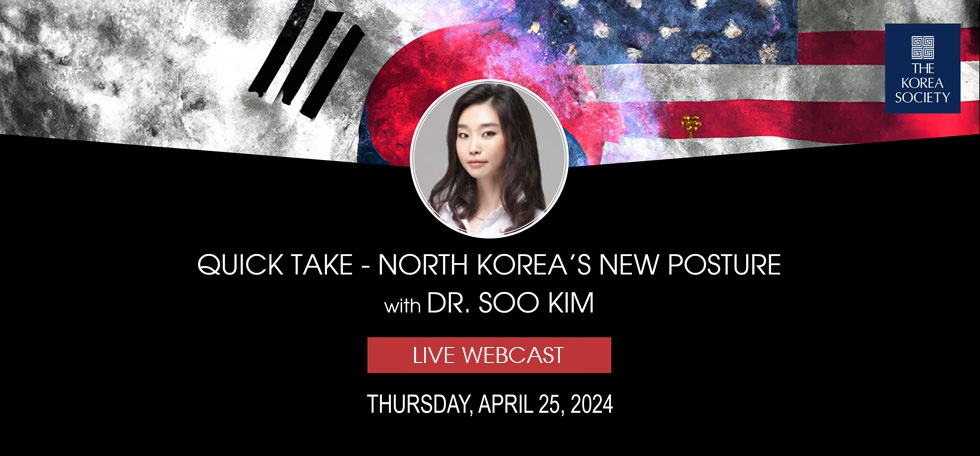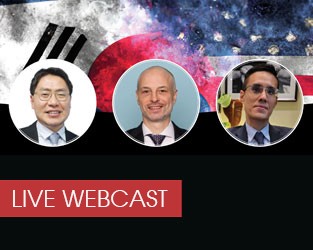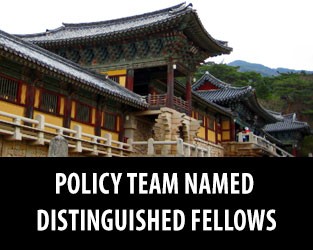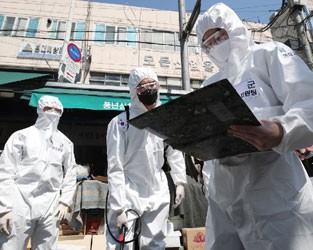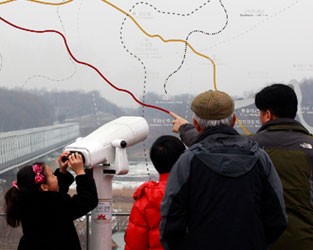![]()
Join us for a rapid reaction analysis of the Republic of Korea’s high stakes 2024 legislative election, held in South Korea one day prior on April 10. This election could shift the control of power in the National Assembly, resulting in an emboldened electoral mandate for President Yoon Suk Yeol, or else creating a new challenge for his administration’s agenda. In this conversation with Korea Society policy program officer Chelsie Alexandre, Stanford University’s Professor Dr. Gi-Wook Shin explores the implications of the election for: Korea’s political, economic, and social policy; its relations with its Alliance partner the United States, and regional states, such as North Korea, China, and Japan.
Rapid Reaction: Unpacking the Korean Election
Thursday, April 11, 2024 | 1 PM (EDT)
The Korea Society
350 Madison Avenue, 24th Floor
New York, NY 10017
About the Speakers:
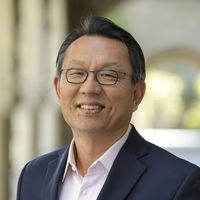 |
|
Gi-Wook Shin is the William J. Perry Professor of Contemporary Korea in Sociology and the Freeman Spogli Institute for International Studies; the director of the Walter H. Shorenstein Asia-Pacific Research Center; the founding director of the Korea Program, all at Stanford University. As a historical-comparative and political sociologist, his research has concentrated on social movements, nationalism, development, democracy, and international relations. Shin is the author/editor of twenty-five books and numerous articles. His recent books include Korean Democracy in Crisis: The Threat of Illiberalism, Populism, and Polarization (2022); The North Korean Conundrum: Balancing Human Rights and Nuclear Security (2021); Demographics and Innovation in the Asia-Pacific (2021); Shifting Gears in Innovation Policy from Asia (2020); Strategic, Policy and Social Innovation for a Post-Industrial Korea: Beyond the Miracle (2018); Superficial Korea (2017); Divergent Memories: Opinion Leaders and the Asia-Pacific War (2016); Global Talent: Skilled Labor as Social Capital in Korea (2015); Criminality, Collaboration, and Reconciliation: Europe and Asia Confronts the Memory of World War II (2014); New Challenges for Maturing Democracies in Korea and Taiwan (2014); Asia’s Middle Powers? (2013); Troubled Transition: North Korea's Politics, Economy, and External Relations (2013); History Textbooks and the Wars in Asia: Divided Memories (2011); South Korean Social Movements: From Democracy to Civil Society (2011); One Alliance, Two Lenses: U.S.-Korea Relations in a New Era (2010); Cross Currents: Regionalism and Nationalism in Northeast Asia (2007); Rethinking Historical Injustice and Reconciliation in Northeast Asia (2006); and Ethnic Nationalism in Korea: Genealogy, Politics, and Legacy (2006). Due to the wide popularity of his publications, many of them have been translated and distributed to Korean audiences. His articles have appeared in academic journals including American Journal of Sociology, Comparative Studies in Society and History, Political Science Quarterly, International Sociology, Nations and Nationalism, Pacific Affairs, Asian Survey, and Journal of Democracy. Shin is currently writing two books – Next Korea (in Korean and English) and Talent Giants in the Asia-Pacific Century. The former is based on his monthly columns published in Shindonga (New East Asia), Korea’s oldest monthly magazine, that have addressed main challenges and solutions for Korea’s future. The latter is a comparative study of talent strategies of Japan, Australia, China, and India that were instrumental to their rise. In Summer 2023, Shin launched the Stanford Next Asia Policy Lab (SNAPL) which is a new initiative committed to addressing emergent social, cultural, economic, and political challenges in Asia. Across four research themes– “Talent Flows and Development,” “Nationalism and Racism,” “U.S.-Asia Relations,” and “Democratic Crisis and Reform”–the lab will bring scholars focused on Asia to produce interdisciplinary, problem-oriented, policy-relevant, and comparative studies and publications. Shin is not only the recipient of numerous grants and fellowships, but also continues to actively raise funds for Korean/Asian studies at Stanford. He gives frequent lectures and seminars on topics ranging from Korean nationalism and politics to Korea's foreign relations and historical reconciliation in Northeast Asia and to talent strategies. He serves on councils and advisory boards in the United States and South Korea and promotes policy dialogue between the two allies. He regularly writes op-eds and gives interviews to the media in both Korean and English. Before coming to Stanford in 2001, Shin taught at the University of Iowa (1991-94) and the University of California, Los Angeles (1994-2001). After receiving his BA from Yonsei University in Korea, he was awarded his MA and PhD from the University of Washington in 1991. |


